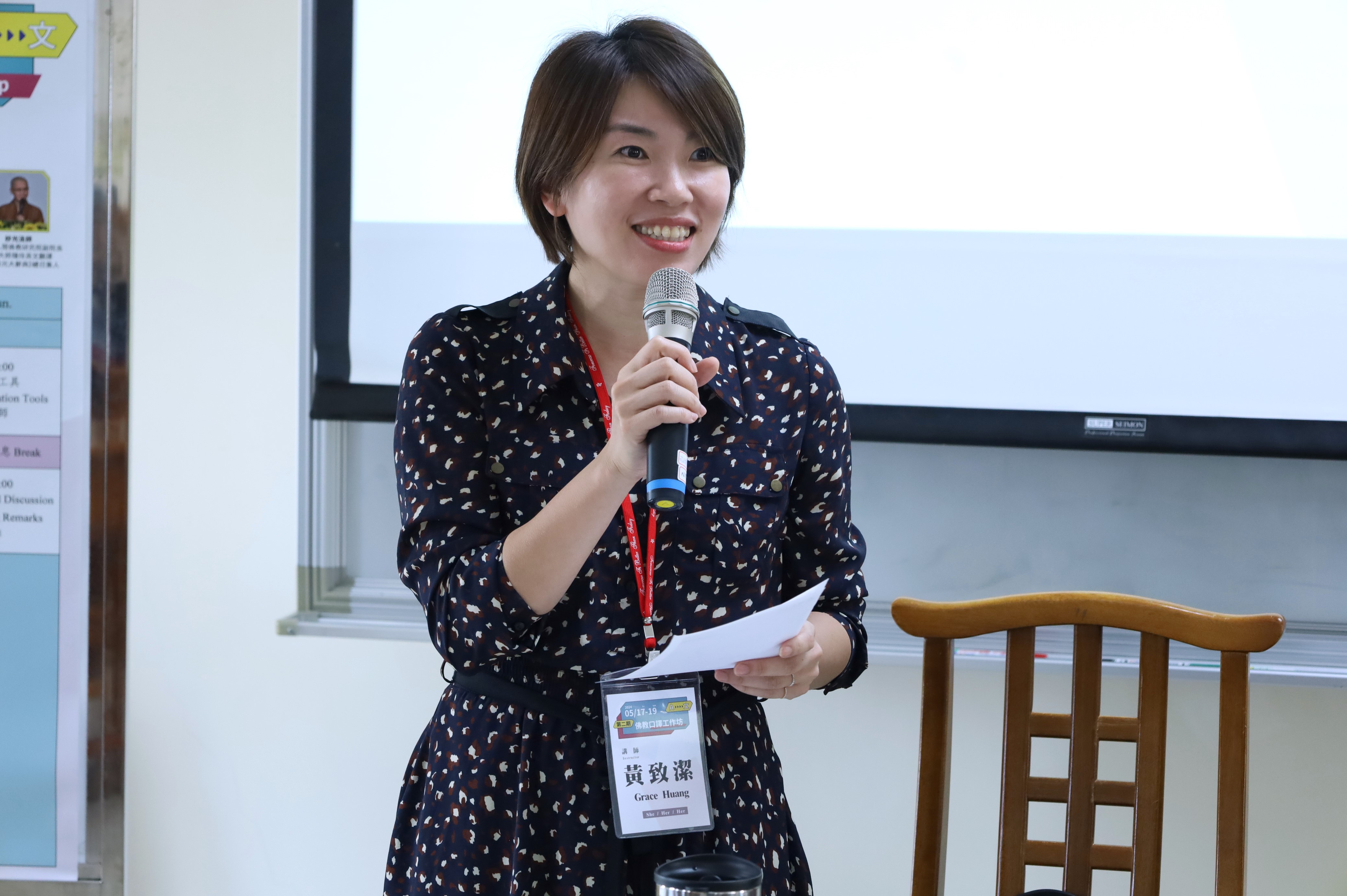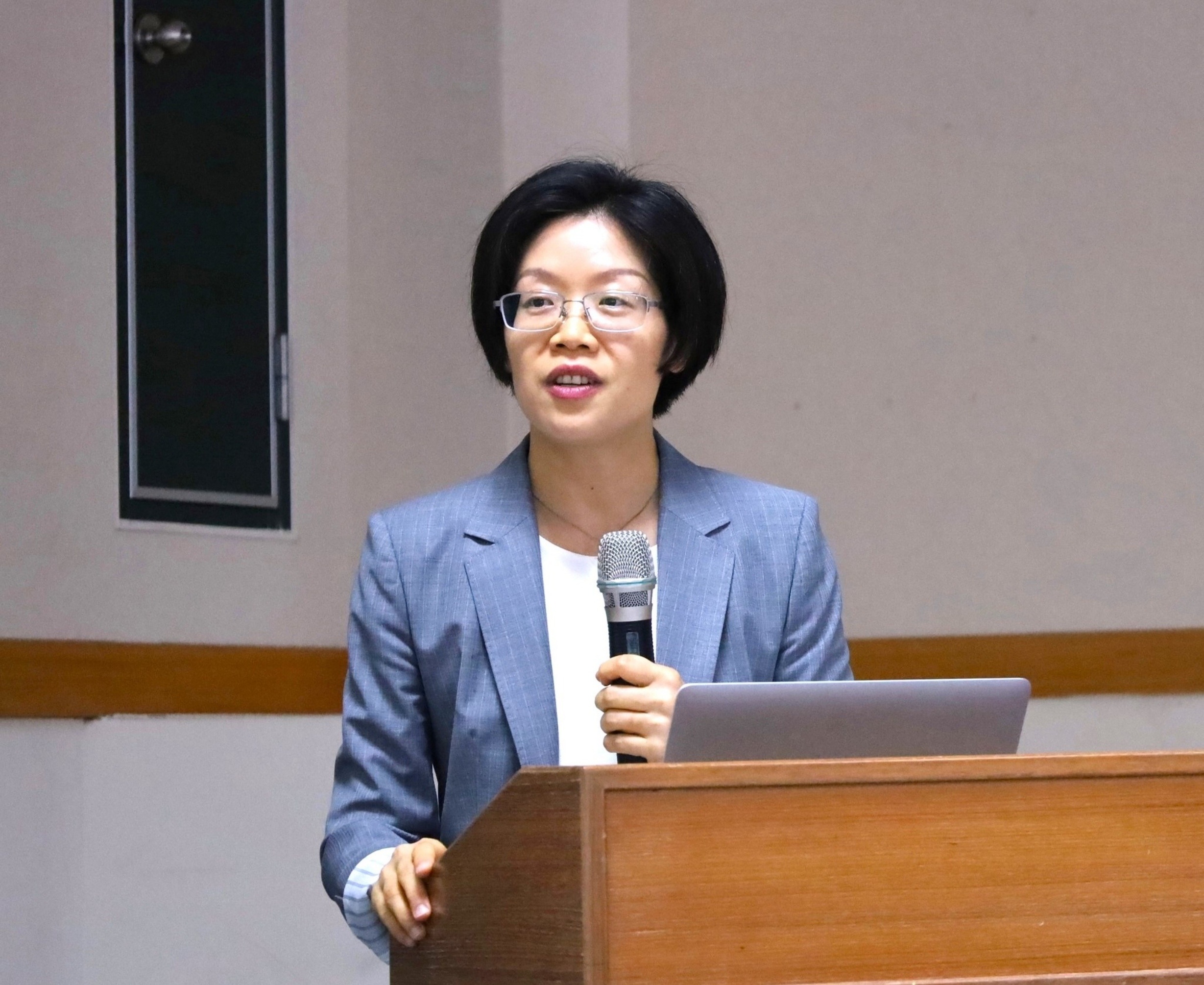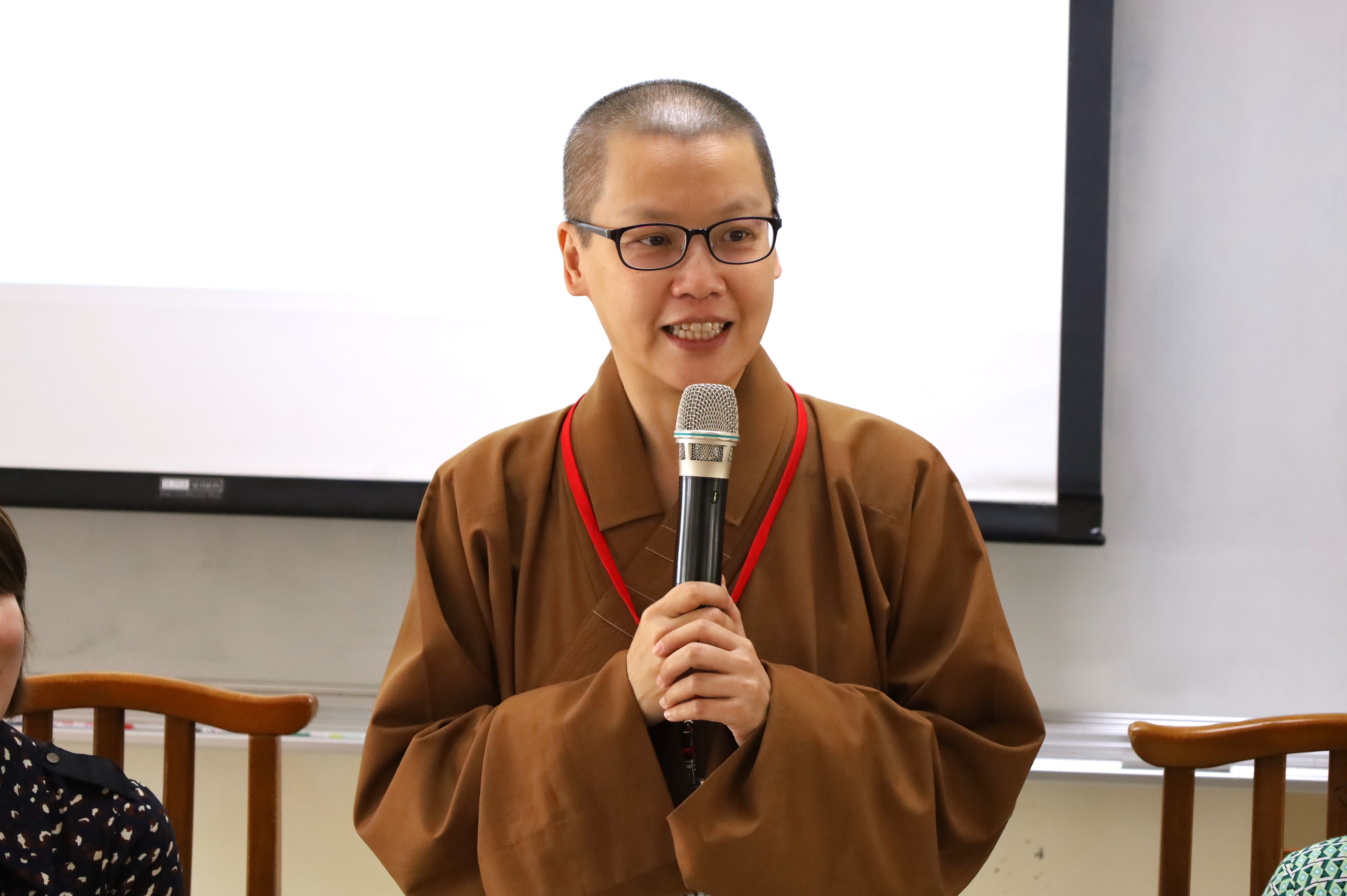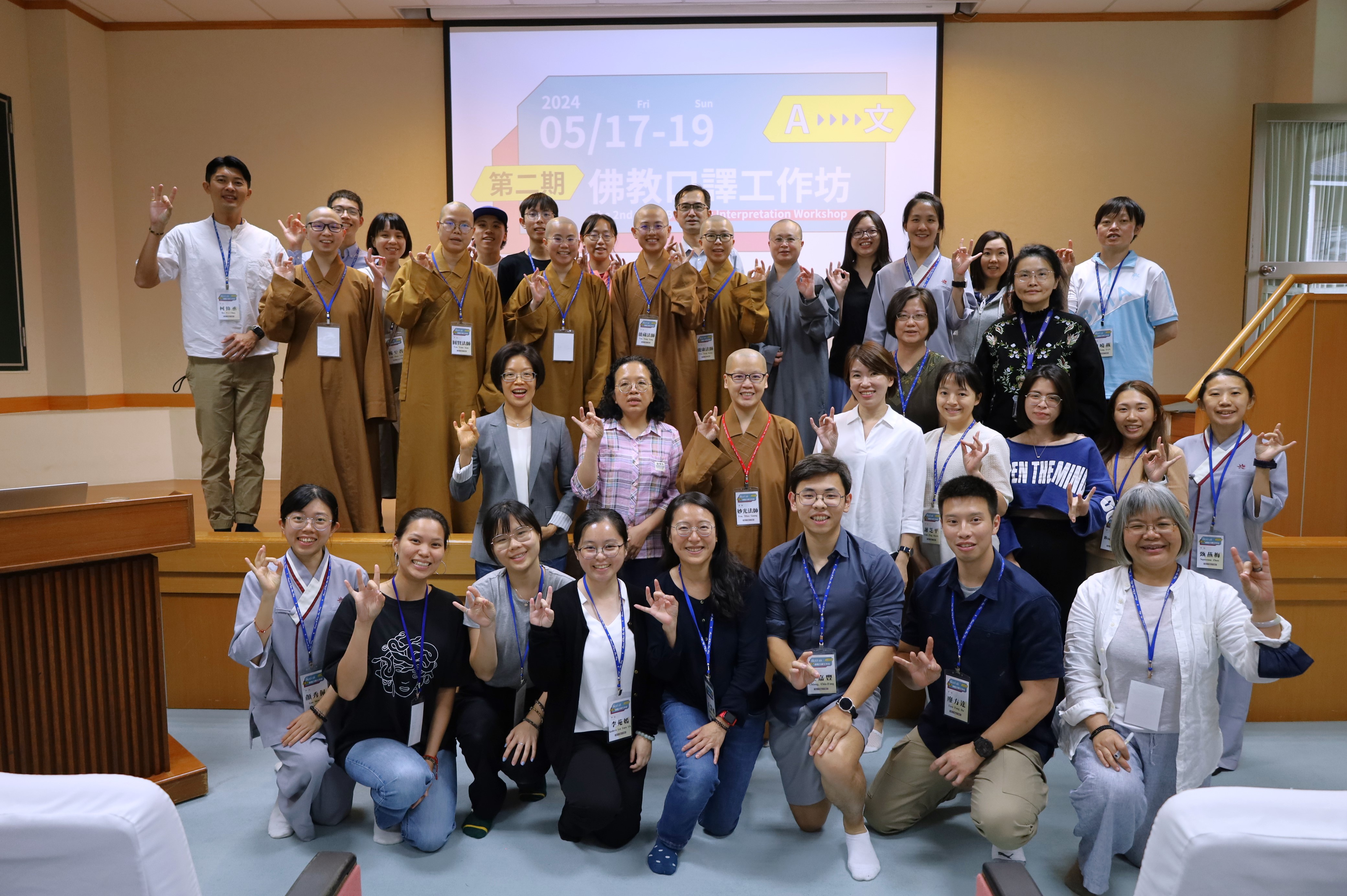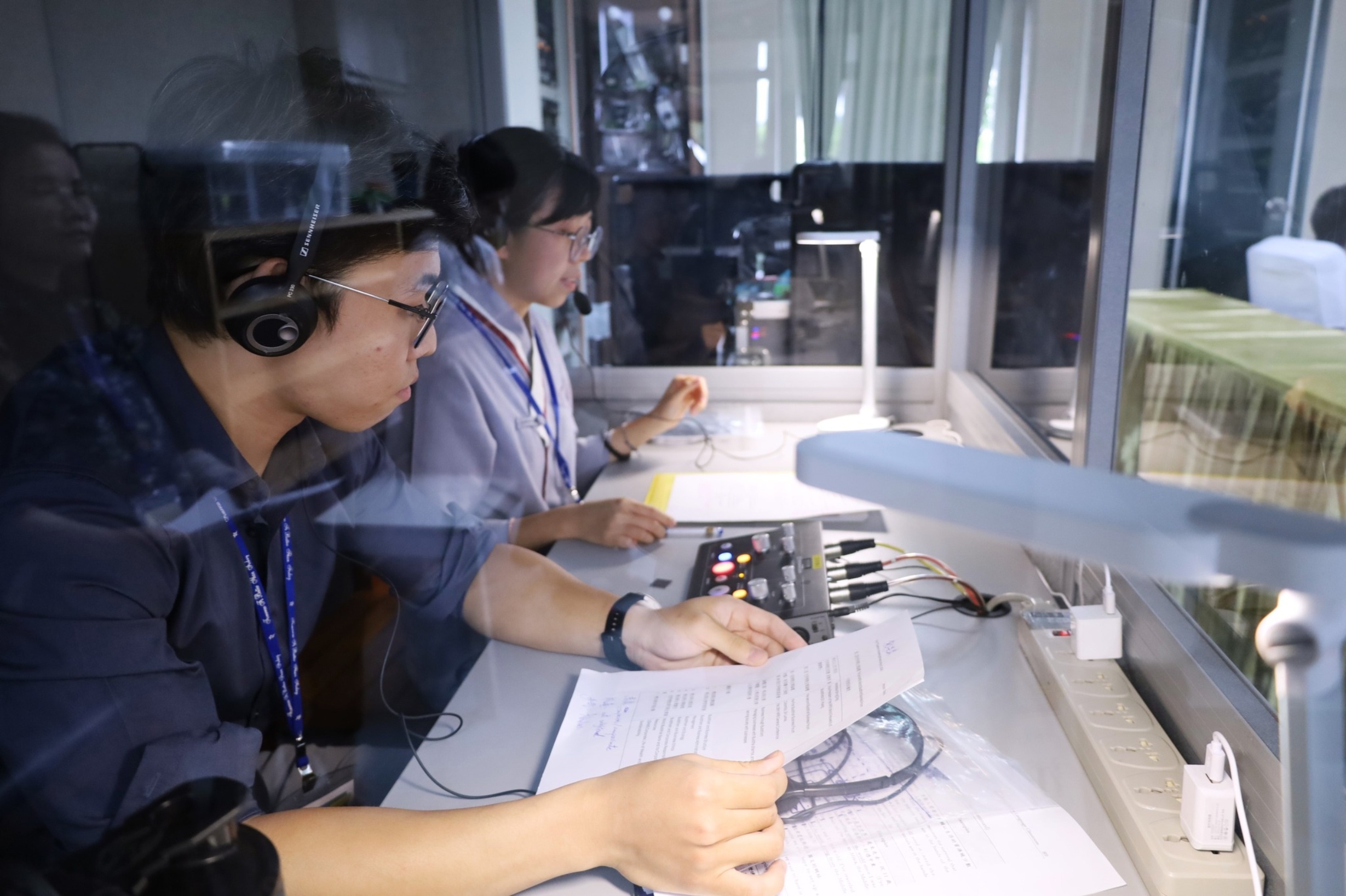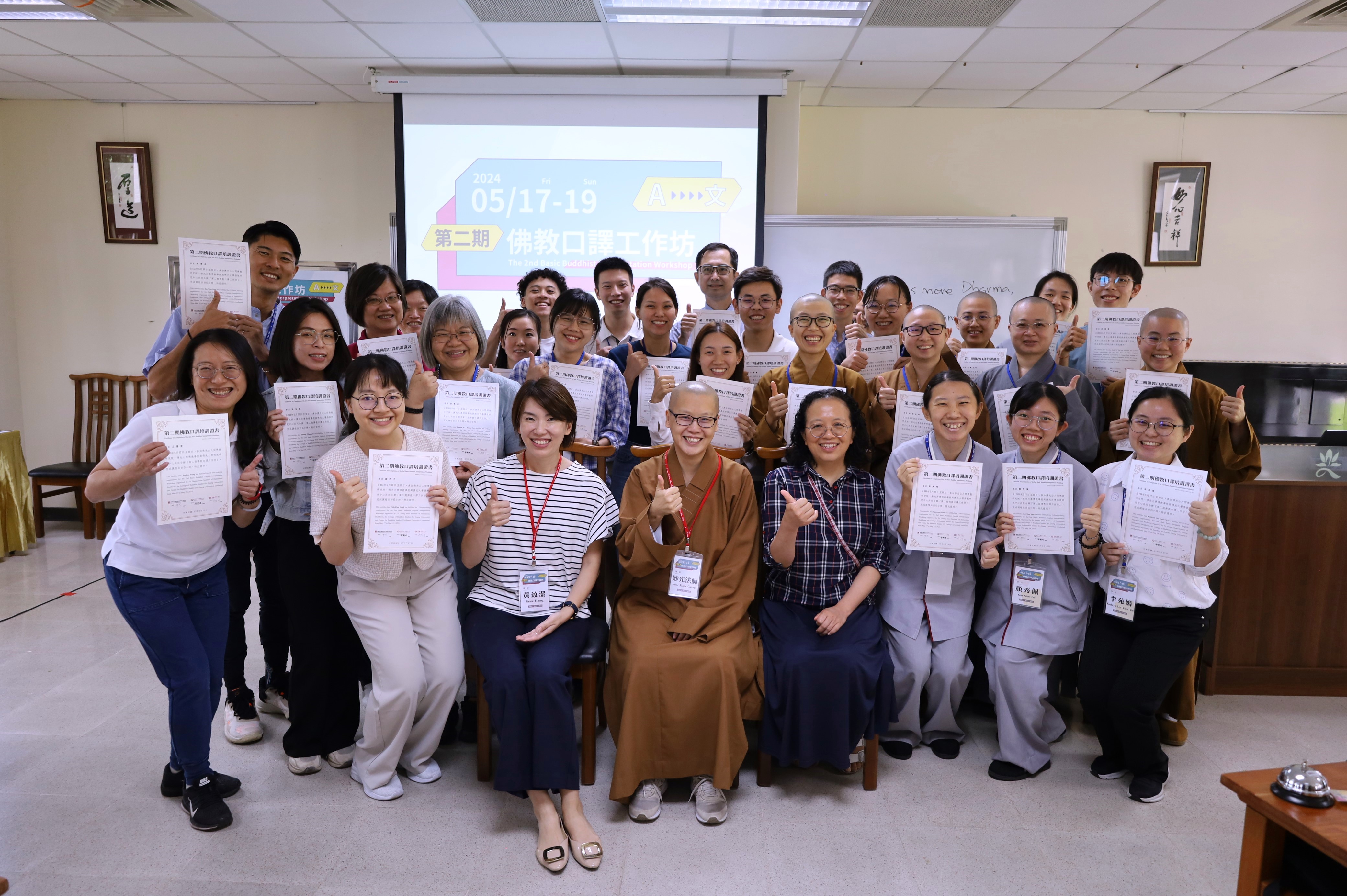To train Buddhist interpreters and promote international Dharma propagation, the Fo Guang Shan Institute of Humanistic Buddhism, Department of Buddhist Studies at Fo Guang University, and the Fo Guang University Center for Buddhist Studies jointly organized the “2024 Second Basic Buddhist Interpretation Workshop” from May 17 to 19 at the Yun Shui Building, Fo Guang University. 32 participants from the United States, Australia, Malaysia, Indonesia, Vietnam, the Netherlands, Argentina, Hong Kong, and Taiwan participated in the workshop to enhance their skills in Buddhist interpretation, and vow to share the compassion and wisdom of Buddhism.
Building on the introductory course from the first workshop, this workshop focused on advanced interpreting techniques, strategies, and practical exercises for participants who have prior experiences in Buddhist interpretation. Esteemed instructors included Four instructors were invited to: Grace Huang, Chinese-English conference interpretation and bilingual hosting professional; Dr. Yinyin Wu, Assistant Professor of the Graduate Program in Translation and Interpretation at National Taiwan University; Venerable Miao Guang, Deputy Chancellor of the Fo Guang Shan Institute of Humanistic Buddhism and personal interpreter for Venerable Master Hsing Yun; and Professor Cheng Wei-Yi, Director of the Department of Buddhist Studies at Fo Guang University. These experts shared their rich experiences and engaged with students through practical exercises and feedback sessions.
Grace Huang and Venerable Miao Guang jointly taught paraphrasing as an interpretation strategy. Grace recommended categorizing and describing information on the spot, making technical terms and poetry more understandable and thus allow for effective communication. From a Buddhist interpretation perspective, Venerable Miao Guang outlined six strategies for handling Buddhist terminology: literal translation, description and explanation, instant request for confirmation, use of general terms, advance preparation, and flexible adaption. She also suggested using reference tools like The Glossary of Humanistic Buddhism and 365 Days for Travelers for preparation.
Further sessions by Grace covered “sight translation,” “shadowing and multi-tasking,” and interpretation exercises, where participants learned techniques such as chunking, parts of speech conversion, adding or omitting information, and effort model. She introduced professional interpretation equipment including “translation booth” and booth etiquette, and arranged for participants to practice simultaneous Buddhist interpretation in an immersive setting.
Dr. Yinyin Wu, an expert of Buddhist interpretation and translation, lectured on “Into-B Interpreting Strategies” and “B Language Enhancement.” She shared four key strategies for English translation: be flexible, one chunk at a time, be clear, and be concise, as she guided students through practical exercises to refine their interpretative tasks. Venerable Miao Guang discussed “Buddhist Translation Tools,” focusing on the accurate interpretation of Buddhist terminology using paraphrasing skills, sharing experiences, and providing resources and methods to build confidence through self-training.
During the general discussion session, participants from various professions, including interpreters, emcees, military personnel, and students from the Graduate Institute of Translation and Interpretation at National Taiwan Normal University, Fo Guang Shan Tsung Lin University, and Fo Guang University, seized the opportunity to seek advice from the instructors. They have greatly benefited from the workshop’s intensive and rich curriculum, comparable to that of a translation graduate program, and valued the systematic learning opportunity it provided. The workshop also rekindled the passion and direction for interpreters already engaged in Dharma propagation, motivating them to enhance their skills. Instead of pursuing perfection, Venerable Miao Guang advised that Buddhist interpretation is about attaining completeness. Furthermore, she inspired participants to purify people’s minds through their interpretation and thus contributing to world peace.
At the closing ceremony, the instructors presented the “Certificate for Completion of the 2nd Basic Buddhist Interpretation Workshop” to the 31 participants who have completed the 15-hour course. Plans are underway to prepare for the third workshop, which will introduce intermediate-level courses, as well as the establishment of the Buddhist Translation and Interpretation Association in the near future.
相關圖片
相關連結












